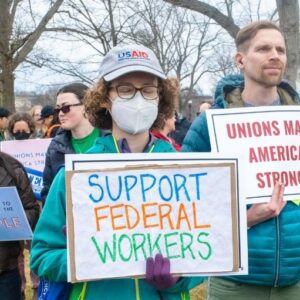March 1, 2015
The TPP: A Secret, Dirty Deal
(This article first appeared in the March-April 2015 issue of The American Postal Worker magazine.)
A trade deal the U.S. is negotiating in secret with 11 other countries would slash labor rights; obstruct access to medication; degrade food safety; weaken regulations that keep our air and water clean, and restrict Internet freedom.
The deal has no expiration date or separation clause, meaning if it is signed, it would last forever.
Known as the Trans-Pacific Partnership (TPP), the behind-closed-doors agreement includes: Australia, Brunei, Canada, Chile, Japan, Malaysia, Mexico, New Zealand, Peru, Singapore, Vietnam and the United States. The U.S. joined the negotiations in 2010.
Because TPP talks have taken place in secret, Americans have had to rely on leaked documents for insight into the provisions.
Lobbyists for banking, software, pharmaceutical and tobacco companies are pressuring Congress to “fast track” the agreement, which means special rules would allow the White House to negotiate and sign the trade agreement without congressional oversight. Legislators would not be able to edit provisions, and would have only 90 days to ratify the entire agreement.
The negotiations are purportedly aimed at increasing international trade and investments by lowering tariffs and other trade barriers among participating countries.
But not much of the TPP actually addresses trade issues. Instead, TPP regulations would trump the laws of participating countries. That means, for example, that the TPP would erode our food safety standards by allowing foreign governments and corporations, as well as U.S. corporations to initiate proceedings against the U.S. government if our food safety regulations limit the expansive rights investors are given under the agreement.
One of the central arguments made by proponents of the pact is that the TPP will create thousands of U.S. jobs. However, similar trade agreements have resulted in a net loss of millions of U.S. jobs. NAFTA, the North American Free Trade Agreement, was such a bill; it was also fast tracked. The American people were told that NAFTA would add 200,000 jobs in 1995 alone. In reality, 700,000 U.S. jobs were lost to Mexico.
Opponents of the deal say that the lowered tariffs and regulations will not only open the door for unsafe working conditions both here and abroad, but severely diminish the quality of life for all Americans.
The APWU opposes TPP and fast tracking, in accordance with a resolution adopted at the 22nd National Convention in July 2014. Several APWU locals are urging legislators to fight the fast tracking of TPP. Unfortunately, a coalition of Senate Majority Leader Mitch McConnell, House Speaker John Boehner, the US Chamber of Commerce, the Business Roundtable and the White House is working together to pass fast-track authorization for the biggest trade giveaway ever.
“APWU members should be alert and active on this issue,” said President Mark Dimondstein. “When the fast tracking of TPP comes up in the House, please let your representative know that you want him or her to oppose fast tracking TPP.”



